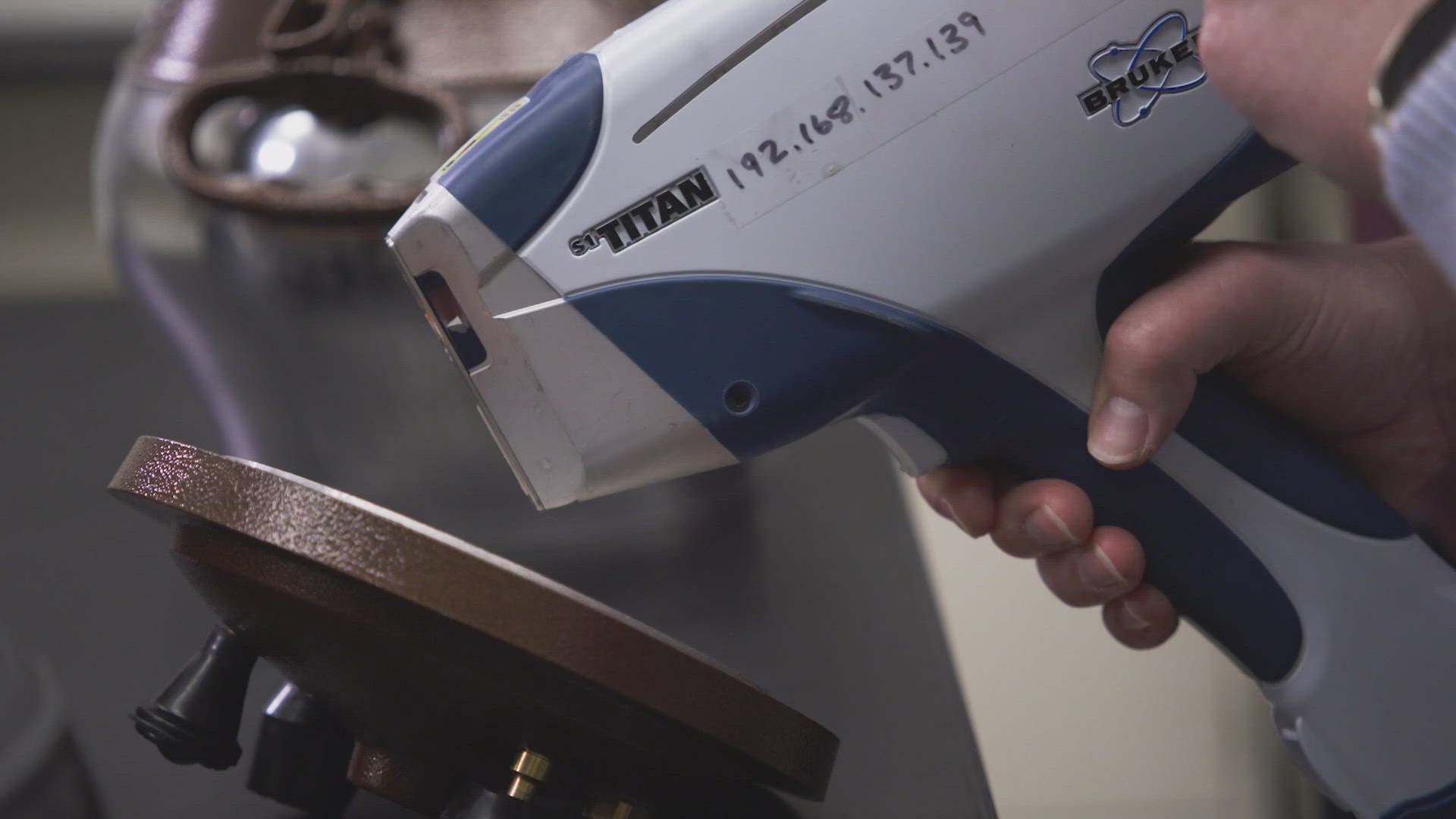REDMOND, Wash. — It wasn’t until his family’s arrival in the United States in January that Hamidullah Shabaan learned the possible cause of the concerning behavior by his 6-year-old twins.
“They were crying. Even they were … breaking glass and they were eating glass,” said Shabaan, from the living room of his apartment in Redmond. He had first noticed the learning disabilities and developmental problems when his children were 3 years old in his native Afghanistan.
“I was thinking my son is going to lose his mind,” said an exasperated Shabaan.
Answers came from blood tests the boys received when they arrived in America. Both had high levels of toxic lead in their bloodstreams. Lead can stunt growth and development in children.
“So, the doctors ... explained to me and then I understood. It’s going to be very, very dangerous, especially for the kids,” said Shabaan.
It’s exactly the kind of story that pushed Washington to become the first in the nation to pass a state law earlier this year that will restrict the amount of lead in cookware to less than five parts per million lead.
Shabaan’s family was fortunate to arrive in King County where extensive research following cases like Shabaan’s pinpointed high levels of lead in Afghan children to traditional aluminum pressure cookers that are common in Afghanistan households. Tests by the King County Hazardous Waste Management Program showed the pressure cookers, that are advertised as aluminum products, actually contained tens of thousands of parts per million lead.
It's not just Afghan cookware. Subsequent testing by King County showed lead in a wide range of imported aluminum pots and pans. Many of these items are a click away on websites like Amazon and Etsy.
State Representative Gerry Pollet (D-Seattle) sponsored HB 1551 that was signed into law in April.
In addition to limiting lead to five parts per million, it also empowers the Washington State Department of Ecology to educate manufacturers and sellers and to search for potential violators.
“We will do periodic testing to ensure that products sold in Washington are compliant with the new law,” said Marissa Smith, senior regulatory toxicologist.
At a laboratory in Port Orchard, scientists are mapping out a plan on how those tests will work. Testing for five parts per million lead in a product requires sensitive instrumentation. The lab has a new inductively coupled mass spectrometer that is more than up to the job.
Senior Chemist Sara Sekerak showed KING 5 how the team can liquify parts of a pot or pan and send it flowing through the mass spectrometer. The device will identify all the elements in the material, including the lead content.
“The advantage of this instrumentation is that it’s highly accurate and very, very sensitive,” said Sekerak.
The state is still figuring out how it will identify and purchase cookware when the new law takes effect in 2026. Regulators hope that manufacturers and sellers will comply when they are found in violation, but the HB 1551 does include fines for business that don’t.
In 2023, the KING 5 Investigators purchased several Afghan pressure cookers and imported aluminum pots from Amazon and Etsy. All of them, except for one, contained lead. One pressure cooker registered 36,000 parts per million lead. Amazon and Etsy removed most of the items after our story, but not all of them.
In September of last year, KING 5 sent an email to Aramco Imports, Inc reporting that its Alpine Cuisine 3.5-quart stock pot had 474 parts per million lead in the aluminum product. Aramco President Viken Soulahian responded that he believed the stock pot was “entirely aluminum” and that he ordered the Chinese manufacturer “to do thorough testing to see what is harmful or hazardous.”
However, the same pot remains for sale on Amazon. In April of this year, in preparation for this story, KING 5 purchased another 3.5-quart aluminum stock pot from Aramco on Amazon. Subsequent testing of this pot by Dr. Katie Fellows of the Hazardous Waste Management Program found the new part also contained lead: 323 parts per million.
Soulahian did not respond to repeated messages from KING 5 over the past several weeks seeking an explanation. The pot is still legal to sell in Washington because HB 1551 does not go into law until January 2026.
Hamidullah Shabaan’s doctors told him there is no medical treatment for lead poisoning. His boys are now following strict protocols to avoid lead intake, including limiting playtime outdoors, drinking bottled water instead of from the tap, and eating from lead free cookware.
The family’s traditional Afghan pressure cooker has been replaced with a stainless-steel Instant Pot.
King County experts say their tests showed lead in imported aluminum products, not in US-made aluminum. For the safest bet, they recommend stainless-steel cookware.
For more tips on how to reduce your exposure to lead in the kitchen, King County has suggestions here.

